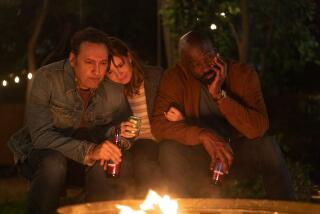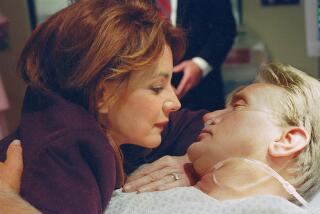âBreaking Badâ recap: None of this had to happen
The world of âBreaking Badâ is a moral one. Iâve said this over and over in these final reviews, and if thereâs one definitive point the series seems to want to underline and highlight in its final episode ever, âFelina,â itâs that this is the kind of world where sin is ultimately punished, but altruism and doing the right thing are rewarded somehow. Itâs right there in the first scene: Walter is about to steal the car that will carry him back to New Mexico, but the police drive up. He begs some power greater than himself (in what reads almost as a prayer), only to find the police pulling away and the keys underneath the visor. Some other power has need of him to still be alive.
Walter White must die for his sins, but the world he occupies can use him as an instrument of justice, righting wrongs that have festered in his absence. Doing this will require letting go of everything he believed to be true about himself, but thatâs been a process heâs gone through in the last two episodes, ever since Uncle Jack put a bullet into Hankâs head. Itâs powerful television. Itâs a stunning ending. But is it a fitting conclusion to âBreaking Badâ?
PHOTOS: âBreaking Badâ scenes | Every season, every episode
Since some point in its second season, âBreaking Badâ has effectively been two shows in one. The first of those two shows was the one we thought we were watching in the pilot: A mild-mannered chemistry teacher breaks bad and discovers how thrilling it can be, then drags us into the thrills right alongside him. In general, he is someone weâre supposed to root for, someone weâre supposed to cheer.
In the second show, âBreaking Badâ was all about a man who made a choice to break bad and revealed untold depths of bleak awfulness within himself. It was a series about a man who broke himself open and revealed a monster driving the controls, then decided he kind of liked that version of himself. âBreaking Badâ was always great at playing both sides of this equation, even in episodes like âOzymandias,â where you really feel for the guy about losing all his money, right before he turns Jesse over to the Nazis and you hate him all over again.
(Sidebar: Most of my criticisms of this season boil down to a frank consideration of what I want this show to be, but when it comes to terms of actual storytelling quality, I think the Jesse arc was, ultimately, a dud. It was repetitive, particularly when considered in light of things the show has done before, and sort of pointless, and he was severely underused in âFelina.â)
PHOTOS: Before they were actors on âBreaking Badâ
What âFelinaâ attempts to do is to get back to show one via show two. By slyly acknowledging all that Walter had become in his pursuit of power, the show hoped to have him not redeem himself, exactly, but push just far enough over into the ânot entirely evilâ side of the ledger to stay alive long enough to get back to Albuquerque and carry out his own form of justice. Things go right for once. He seems able to simply slip past the police. His machine gun contraption works perfectly to rid the world of the Nazi menace. And heâs able to see both of his children one last time â and even gets to smooth baby Hollyâs curly hair while she sleeps.
Walterâs actions get increasingly grandiose in terms of trying to buy enough time to carry out his plan. He over-tips a waitress. He leaves that expensive watch Jesse gave him to help pay for gas. His revenge against the Nazis turns into a rescue when he realizes Jesse has been held in captivity all this time. And the ânot entirely evilâ actions carry over in terms of his own internal revelations. He finally admits to Skyler that he did what he did not for the family but because he liked it, because he was good at it. And when Jack tells Walt that if he kills Jack, heâll never know where his money is hidden, Walter doesnât hesitate to immediately plug him in the head, finally letting go of some of that corrupting pride and greed, even if itâs just a tiny amount. When Jesse drives out of the Nazisâ compound, he looks back to see Walter, mostly in darkness, but framed with a slight blur of light. That light only seems to have returned to him in this episode.
PHOTOS: Behind the scenes of âBreaking Badâ
The question is whether you bought for an instant that Walter âdeservedâ that ending. âDeservedâ is a funny word, because it reads the viewerâs expectations into the work of art, when itâs much more important to try and suss out just what Vince Gilligan and his writers were up to, then determine how well they stuck to their guns. (From my point of view, very well.) But even thatâs a bit of a distraction, because I think what the âdeservedâ question gets at is how the show fundamentally had to come down on the side of show two or show one, and it ultimately decided that it wanted to end show one, instead of show two. Thereâs absolutely nothing wrong with this. âFelinaâ is a blistering finale to that first show, one that offers the satisfaction of seeing Badger and Skinny Pete pretend to be hit men or Lydia mix that ricin into her tea. But it also leaves out plenty of the awful things that Walter has done, that he might die alone in the meth lab he created, his blood marring what might have been one last perfect cook.
To be sure, thatâs not the ending to the show I thought I was watching. All along, I believed I was watching show two â reading any of my reviews of this final season on this very website will prove that. But in this finale, even as Gilliganâs script and direction tossed glances toward the monster Walt had become, he seemed to turn into a force of if not good at least freedom. He shed all of his many layers of skin to reveal that some glimmer of the man who existed in the pilot was still present, and he let that man take control to carry out this last, deadly gambit. Most fittingly, he seemed to understand that death was the price for all of this, that he would be able to get the money to his children (presumably) and take out those whoâd wronged him and maybe even get Skyler to see him in a slightly more positive light, just so long as he finally rid the Earth of his cancer, even if he was dying already. As an added bonus, he got to free his former partner, the one man who might have a shot at something like a good life out of all of this, even if heâll forever be marred by what he became.
VIDEO: âBreaking Badâ parodies
And yet, the more I think about âFelina,â the more unsatisfactory that reading seems to me. The finale isnât as slippery and complicated as I would have wanted it to be, to be sure. This is a show thatâs always thrived in moments of the unexpected and in moments when the logic sequence jumped from A not to B but all the way to G or even X. There were moments in here when the show might have gone back to some of the visual poetry that dominated its second and third seasons â still its best. And it still bothers me a little that itâs possible to read this as Walt âwinningâ in any way, shape or form. Heâs not someone who, frankly, should be winning at this point.
But as I said last week, this is Waltâs story, so itâs fitting that it ends as he dies, police storming the Naziâs compound and working around his body. What he doesnât have to live to see are the consequences, all of the things that will go wrong and continue to go wrong because he broke bad. Skyler and his kids might buy back some semblance of a life with the money he gave them (and the information he gave Skyler to trade to the police). Marie might have the peace of mind that comes from a funeral for her husband. Jesse might have a life thatâs not dominated by being a Nazi meth cook slave and some sort of emotional release. But theyâre all forever going to be marked because one man made a selfish choice, then tried to cloak it in selflessness.
PHOTOS: âBreaking Badâsâ darkest moments [spoilers]
When you come right down to it, the message of âBreaking Bad,â over and over again, is âYou donât have to do this.â You donât have to break bad. You donât have to become evil. You donât have to let a girl die in her own vomit. You donât have to blow up a rival drug kingpin. You donât have to go back to Albuquerque, no matter what tiny amount of redemption it might buy you. Not if youâre Walter White. It feels good to break bad. It feels good to kick someone when theyâre down and take on even more power. But it is almost always harmful and destructive and wrong. Walter White longed to be the greatest, and he was for a time. But memories fade; legends die. Heâs still a man, and no man is an island, not even a self-made one, no matter how many machine guns he can buy and how much money is lost in the process.
None of this had to happen. But it did. And it did because Walter White chose the void when he could have chosen connection. He is the ultimate antihero, the ultimate walking emptiness, a gaping mouth calling out for more. And even if heâd set everything right â and how could he have? â nothing would have washed away that blot on his soul.
ALSO
âBreaking Badâ recap: A walk in the woods
âBreaking Badâ recap: Walterâs world crumbles
Review: On âBreaking Bad,â Walter White comes clean
Todd VanDerWerff
https://twitter.com/tvoti
More to Read
The complete guide to home viewing
Get Screen Gab for everything about the TV shows and streaming movies everyoneâs talking about.
You may occasionally receive promotional content from the Los Angeles Times.






